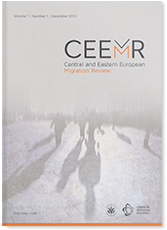Where the Wild Things Are: Fear of Islam and the Anti-Refugee Rhetoric in Hungary and in Poland
Where the Wild Things Are: Fear of Islam and the Anti-Refugee Rhetoric in Hungary and in Poland
Author(s): Elżbieta M. Goździak, Péter MartonSubject(s): Migration Studies
Published by: Ośrodek Badań nad Migracjami / Uniwersytet Warszawski
Keywords: Islamophobia; gender; nationalism; Poland; Hungary;
Summary/Abstract: Based on empirical research conducted in Hungary and Poland in 2016–2017, as well as on analysis of social media, blogs and newspaper articles, this article discusses Hungarian and Polish attitudes towards Muslims and Islam. Against a historical background, we analyse how the Hungarian and Polish governments responded to the large-scale influx of Muslim refugees during the 2015 ‘migration crisis’. The anti-immigrant narratives, fueled by both governments and the right-wing press, resulted in something akin to Islamophobia without Muslims. Instead of portraying the people arriving at the southern border of Europe as refugees seeking safety, they described the migration process in terms such as ‘raid’, ‘conquest’ and ‘penetration’. These narratives often implied that Muslims will combat Europe not only with terrorism but with the uteruses of their women, who will bear enough children to outnumber native Poles and Hungarians. The paper ends with a discussion of positive attempts to improve attitudes towards refugees in Poland and Hungary.
Journal: Central and Eastern European Migration Review
- Issue Year: 7/2018
- Issue No: 2
- Page Range: 125-151
- Page Count: 27
- Language: English

